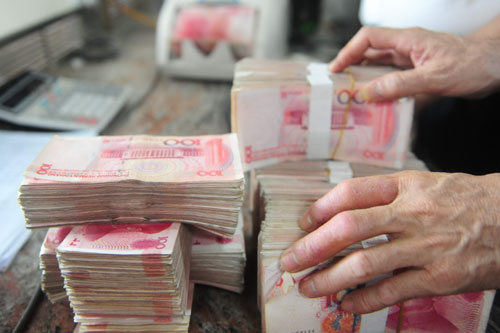New Yuan FDI scheme unveiled
Updated: 2011-10-15 07:23
By Li Xiang (China Daily)
|
|||||||||||
|
China has formally launched a pilot program that allows foreign enterprises to use the yuan to invest in the country. [Photo/China Daily] |
Analyst say program will broaden channels for the currency overseas
BEIJING - China on Friday formally launched a pilot program that allows foreign enterprises to use the yuan to invest in the country, as part of its efforts to raise the global profile of the currency.
The People's Bank of China, the central bank, issued the rules on foreign direct investment (FDI) in yuan in a statement, saying that institutional and individual investors from overseas will be able to apply for permits to make direct investment in China with the settlement in yuan.
The Ministry of Commerce also unveiled detailed definitions and application procedures for the process, explaining that applications for yuan FDI worth 300 million yuan ($47 million) or higher must be submitted to the Ministry.
The move was seen as a major step in China's ambitions to internationalize the yuan after Vice-Premier Li Keqiang pledged in August to support Hong Kong as a key offshore yuan hub and to encourage overseas companies to make direct investment in the mainland with the currency.
Analysts said that the program will substantially broaden channels for the yuan in the overseas market and increase the investment options for yuan-denominated funds in Hong Kong.
"It will also help reduce the accumulation of foreign-exchange reserves that flow in with foreign investors," said Zhao Qingming, a researcher at China Construction Bank Corp.
Zhao noted that the initial scale of investment could be limited because of the relatively high cost of raising capital for yuan in the offshore markets, and certain restrictions on foreign investors.
The scheme will also help encourage foreign companies to issue yuan-denominated bonds in Hong Kong, analysts said.
"The program will promote the development of the yuan-denominated bond market in Hong Kong and boost the city's role as a center for the offshore yuan market," said Norman Chan, executive director of the Hong Kong Monetary Authority.
China launched the pilot program for trade settlement in yuan in 2009, expanding it to 20 provinces a year later in order to push for greater use of the currency globally.
Trade settled in the currency reached 506.3 billion yuan in 2010, accounting for 5.7 percent of China's total foreign trade, according to the central bank.
HSBC Holdings PLC forecast in a report that more than half of China's trade, or about $2 trillion, will be settled in yuan by 2012.














